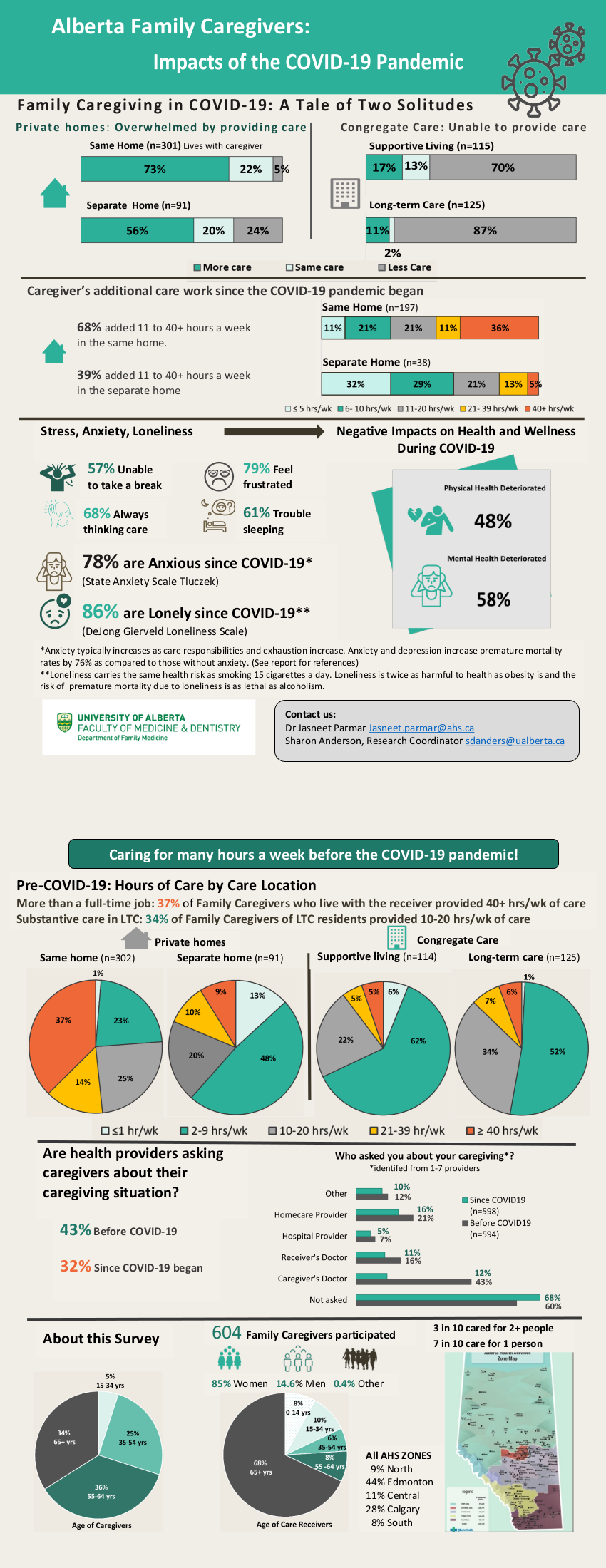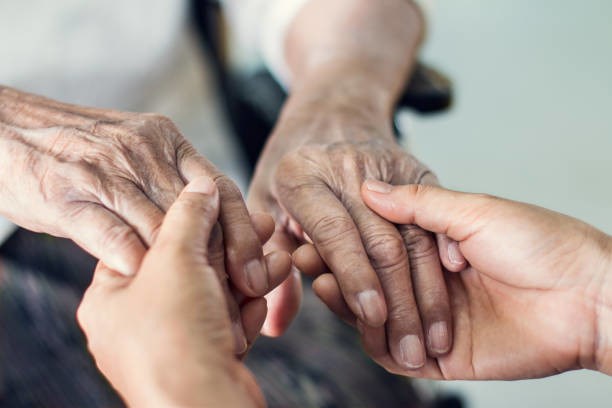As the second wave of COVID-19 assaults Alberta, the feeling of isolation is growing among caregivers.
"We really worry about mental health and the sense of loneliness," said Sandy Sereda, executive director of Caregivers Alberta, a non-profit society that provides support to the almost one million caregivers across the province.
A survey of 604 family caregivers by the University of Alberta's department of family medicine in mid-summer illustrates the negative impact the pandemic is having.
The U of A study showed 86 per cent of family caregivers feel lonely, while 79 per cent said they feel frustrated and 61 per cent reported trouble sleeping. In addition, 58 per cent said their mental health has deteriorated and 48 per cent reported their physical health has worsened. (While full comparative figures were not available, the widely used Six Item DeJong-Gierveld Loneliness Scale showed 54 per cent of family caregivers were lonely before the pandemic in January 2020.)
A 60-year-old Edmonton woman who has been caring for her elderly mother and her mother's husband agrees she has had to endure loneliness and anxiety since COVID-19 hit. She asked not to be identified.
"What I miss most is I haven't been able to hug my mom since March," said the woman, who lives on the city's south side, about eight minutes from her 80-year old mother's home. She brings groceries and prescription medications to the couple twice a week.
"I always mask up when I'm there. But at least we are able to have a visit."
The caregiver, who works full-time running her own company, said she has not slept well during the COVID-19 era.
"Anxiety is a big part of it. There are dark lines under my eyes. You do worry about your physical and mental well-being," she said.
To relax, she practises yoga for 20 minute daily and also goes out for an hour-long walk every day.
The woman said she finds the little things in life are more important now, including trips to Costco. She has recently been joined by her partner for trips to the megastore.
“Now we go together. I enjoy that. It is way easier waiting in line with your partner.”
She said she feels fortunate her mother is still mobile and able to get out on her own by bus.
"I pray, too. I always try to stay focused on the positive."
Caregivers Alberta, which provides online support sessions and workshops, has been swamped since March.
"Our calls have quadrupled," said Sereda, "We have had 2,500 calls so far this year."
She said the main emphasis of their organization is to "encourage caregivers to recognize that in order to care for a loved one, they must first care for themselves."
"We offer peer support sessions,” said Sereda. “It allows a caregiver to just chat to another caregiver. It's a safe place for them if they're frustrated or just want to vent.
“It teaches them to look after themselves and build resiliency. We help them tackle the journey. It can be a long one or a short one."
Sereda added most caregivers are between 45 and 65 years old and between 60 and 70 per cent are still working.
While programs were available in-person before COVID-19, all programs are online only now.
Sereda said Caregivers Alberta can also help people navigate their way through the assorted COVID-19 protocols when they are helping a loved one.
"There is a lot of confusion. We can give them recommendations and point them in the right direction," said Sereda.
Zareena Khan, owner/operator of Home Care Assistance, said business has exploded since early summer as many people, worried about COVID-19, removed elderly loved ones from care facilities.
"Many people took their loved ones out and brought them home because they were fearful," said Khan.
"They needed help caring for them. They can do everything for them, but they need help with the bathing and the toiletry. That's why we’re there."
Khan said her staff total has doubled from 100 to 200 and there has been a five-fold increase in business.

Fact Sheet 2020 10 13. Dr. Jasneet Parmar ( Associate Professor) and Dr. Sharon Anderson ( Research coordinator) Dept of Family Medicine, University of Alberta.
Gary Poignant is a freelance writer and regular contributor to Great West Newspapers. This story was funded by the Facebook Journalism Project Supporting Local News Coverage of COVID-19 Program via the Local Media Foundation.



